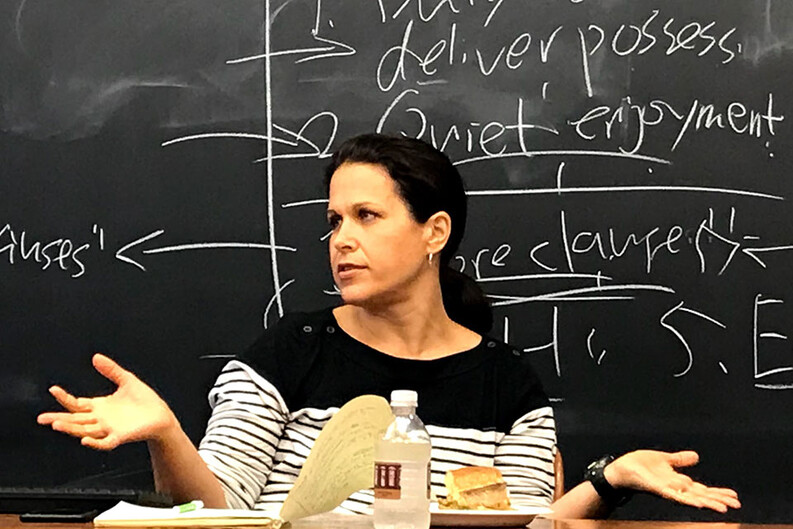Maria Burnett Discusses Threats to Civil Society in East Africa

On November 6, 2017, Maria Burnett ’05 discussed emerging threats to civil society in Uganda, Ethiopia, and Kenya. In her position as Director for East Africa and the Horn for Human Rights Watch (HRW), she has seen the problems facing these three countries firsthand. Burnett spoke candidly about issues facing civil society as well as the limits and frustrations that attend her work.
Burnett has worked on human rights issues in Africa since 2005, when she joined HRW as their Burundi researcher in the Bujumbura field office. She began her talk at the Schell Center by explaining the concerning trends she has seen recently in Uganda, Kenya, and Ethiopia. She described the arrests of journalists reporting on corruption and resource extraction projects in Uganda. She explained that the Kenyan and Ethiopian government have targeted non-governmental organizations (NGOs) in part by limiting the funding they can receive from foreign donors. Ethiopia, added Burnett, “basically has no civil society at this point.” She expressed her frustration that the Ethiopian government has refused to respond to public protests and other outcries.
Burnett considers it crucial to monitor such restrictions placed on civil society because “these issues really get to the heart of all human rights issues in a country—it’s very difficult to talk about different kinds of human rights abuses if local groups can’t speak up and research or do advocacy.” Burnett added that when local NGOs are under threat, it’s harder for international groups to do work in that country.
Burnett is also worried that people in the West do not pay enough attention to these sorts of human rights abuses. “Maybe I’ve been doing this for a little too long now,” she said, “but I am concerned about how we can take these issues forward. These kinds of rights abuses are not particularly sexy—it’s tough to photograph or make a cool social media video about crackdowns on civil society.”
Burnett admitted that since the 2016 election, it has become more difficult to focus the American public’s attention on the human rights abuses she researches, partly because the Trump administration has left many State Department or Department of Defense positions on Africa unfilled. But she added that it “wasn’t all that easy before [to get attention], and I’ve always cared a lot more about our ability to get bandwidth in countries where abuses are going on. For example, if I can do an hour of call-in radio programs in Uganda, I get more people who care and the conversation is way better than if I try for that same attention in the U.S.”
Burnett stated honestly that it takes a great deal of time and effort to report on human rights abuses, and that the payoff is often uncertain. In a particularly bloody incident last year, more than 150 civilians were killed during a military raid in western Uganda. Burnett described how, afterwards, the military commander who authorized the massacre came forward and showed no remorse. Said Burnett, “I put a lot of effort into documenting those killings. But ultimately, the people who committed the abuse have been promoted and those who decried it have been demoted.” But Burnett is not giving up: “I know I’m going to spend the next 10 years of my life talking about those cases,” she said.
Burnett responded to questions about whether the U.S. has the moral authority to condemn abuses elsewhere in the world, “I don’t think that anyone has moral authority—everyone always has a mixed bag of incentives.” Burnett tries to use American military officials’ political motivations to her advantage: when she tries to convince U.S. officials to push for accountability with their military partners in East Africa, she tells them that “they don’t want to be complicit in working with units that the local civil population doesn’t like.”
According to Burnett, if people in the U.S. paid attention to what was going on in the rest of the world, they would see parallels to their own country. “Our work in many parts of world has showed us how Trump works,” she said, referencing Trump’s attacks on the media and civil society. Burnett expressed her hope that her colleagues working on human rights abuses in the U.S. can see patterns in work done elsewhere and can learn from her and others’ research.


